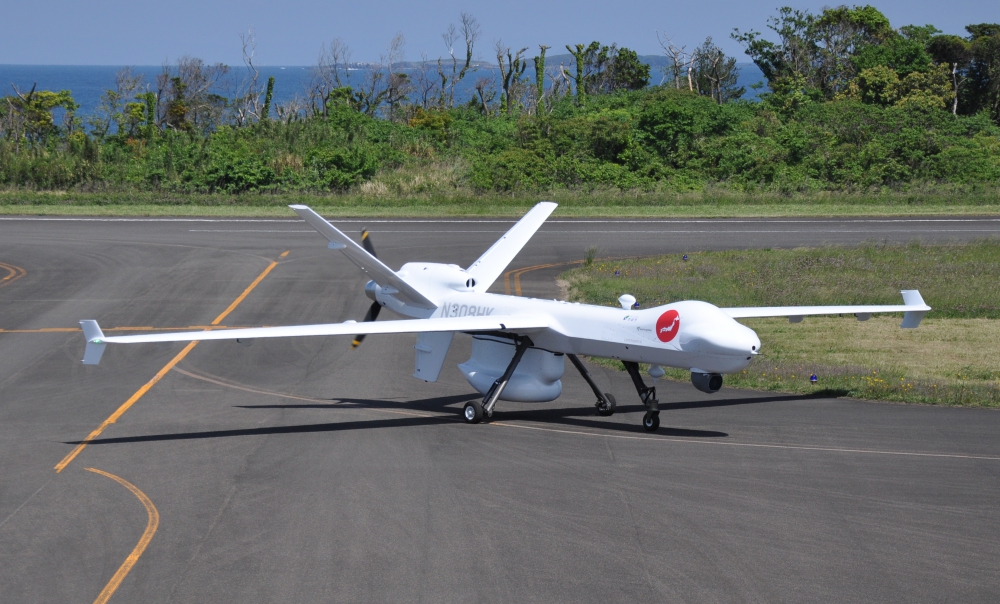General Atomics Aeronautical Systems, Inc. (GA-ASI) announced that the Guardian Remotely Piloted Aircraft (RPA) has concluded the first large-scale demonstration flights in Japan. The demonstration flights, which took place from 10 – 23 May were intended to promote the civil and scientific applications of the RPA.
“We thank the Mayor of Iki and the many other public and private stakeholders who made this demonstration possible,” said Linden Blue, CEO, GA-ASI. “We believe that the flights of long-endurance RPAs in Japan’s maritime environment yielded valuable information, and we now begin the process of reviewing the important data gathered from these flights.”
During the demonstration which operated from the Island of Iki in Japan’s Nagasaki Prefecture, GA-ASI’s Guardian:
- Successfully demonstrated utility in Humanitarian and Disaster Response, by monitoring the volcano on Fugendake, and tracking the spread of a small brush fire on Iki;
- Monitored the environmental impact of overfishing in the Exclusive Economic Zone (EEZ);
- Provided overwatch support to the Japanese Fisheries Agency during routine patrols;
- Demonstrated the utility of GA-ASI’s “Detect and Avoid” system which ensured safe operational flight throughout Japanese airspace;
- Verified the Automatic Identification System (AIS) ability of SeaVue Radar, enabling rapid identification of ships at sea as a method of countering piracy and illegal fishing;
The Guardian configuration RPA has an endurance of in excess of 20 hours, and has been operated successfully by the United States Department of Customs and Border Protection since 2008.
This was the first demonstration of a long-endurance RPA by a private company in Japan. The aircraft’s sensors included a long-range maritime surface-search radar, stabilized optical and infrared video cameras, and an active collision-avoidance system, including a short range air-to-air radar.
GA-ASI led the demonstrations in cooperation with Iki Airport personnel and Japanese national authorities. The sensor data collected by Guardian will be provided to scientific research institutions, and flight data will be given to airspace management organizations to help establish procedures for using RPA systems in national and international civil airspace.
GA-ASI sent its own team of experienced RPA pilots, sensor operators, and maintenance personnel to Japan to ensure safe operation during all phases of the demonstration. The demonstration was funded by GA-ASI and the equipment used belongs to the company.
Source: Press Release

